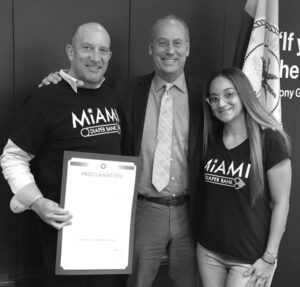
Meeting with your Legislator
Reaching Your Federal Elected Officials
As you begin your advocacy work, you’ll begin to develop relationships with the staff in your representatives’ offices. Building these relationships over time is key to being an effective advocate for change. You can email, write, call, or visit your congressional representatives. Members of Congress have offices both in Washington and at least one location in their district.
One of the most effective actions is to meet face-to-face with senators, representatives, along with candidates, in the member’s home district. Both offices have staff members who are often the subject matter experts in the office. If you can’t meet with the member directly, you can often reach the member by meeting with the staff. In many cases, the staff member may be even more knowledgeable about diaper need and child poverty than the Member of Congress!
Writing a Letter
You can send an email or a letter to your member of Congress. Personalize it with information about your program, the community you serve, and how diapers make a difference. If you are writing about a particular bill, explain how it will effect your program or your community.
Preparing to Meet
When meeting with your federal legislators or their staff, remember that you are the expert and are there to give them information about diaper need in your community, and what you are doing to address it. Meetings may be very short, and may be with staff rather than the member. Often the staff member will be the expert on the issue in the Member’s office. Refer to the What to expect when meeting legislators and staff tip sheet to ensure you feel comfortable and are prepared for your meeting.
 You can find your Member of Congress’s office information here. Call the legislator’s office and ask for the scheduler to schedule an appointment. They may prefer that you send an email.
You can find your Member of Congress’s office information here. Call the legislator’s office and ask for the scheduler to schedule an appointment. They may prefer that you send an email.
After You Meet – Follow Up
Following up after your meetings with elected officials, elected officials staff, or candidates is a critical next step in forming a good, working relationship. We encourage you to personalize a thank you letter to reflect your individual experience, including specific facts about your local situation. We suggest that you send promptly after returning home. Here’s a sample thank you letter template to get started.
A Few More Ways to Build a Relationship with Your Member of Congress:
- Send a letter to your member of Congress about the work of your diaper bank and include a press clipping. Invite your member of Congress to visit your diaper bank.
- Introduce yourself to your member of Congress’s aides, who may handle poverty and child legislation.
- Schedule a face-to-face meeting with your member of Congress or their staff.
- Ask your member of Congress to take leadership on diaper need
- Inspire your member of Congress to write an op-ed about diaper need.
- Send an email thanking him or her for action recently taken to improve the lives of children and families in poverty.
- Make a phone call or write a letter to your member of Congress about a bill related to diaper need or child poverty.
- Ask a question at a town hall meeting or a candidates’ forum. You can find a town hall near you through the Town Hall Project.
